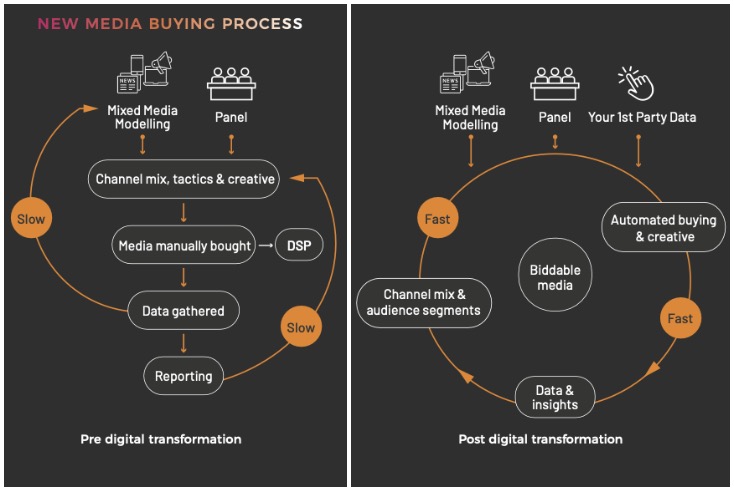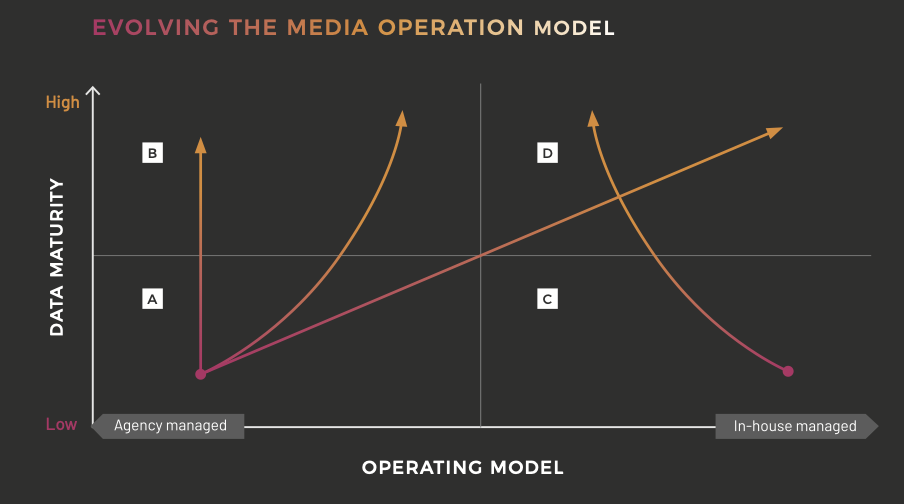Agencies face back-seat roles amid ‘new wave’ of in-housing

Media agencies may have to act more as consultants for advertisers and focus less on activating their campaigns, a punchy white paper by ISBA and Infectious Media has suggested as a further wave of in-housing media services takes hold.
The paper, published today, warns that scale of agencies’ buying power is becoming less important as brands continue to in-house media strategists and specialists.
The Covid-19 pandemic, which accelerated longer-term consumer trends of online shopping and TV streaming, has brought about “the next wave” in digital transformation, the report says.
Brands have wised up after ad tech ‘hot air’
Martin Kelly, co-founder and CEO of Infectious, told Mediatel News: “Clients are taking an educated look at the campaign process and saying: ‘some of this, we’re not going to outsource it anymore’.”
Many large UK and global advertisers have been in-housing digital media expertise for several years, such as programmatic media-buying, paid social media or paid search advertising.
However, Kelly explained, many brands had been previously taken in by “a lot of hot air” from ad tech platforms that were incentivised to make them think it was easy to run their digital media in-house without agencies.
“Now, [digital transformation] is more measured and consistent across the board, in the way that people are examining how they operate with partners. The onus is now on the agencies to up their game and change their model.”
ISBA steering groups replete with ‘ex-agency people’
As part of this new wave of digital transformation, several larger brands have also been raiding media agencies to bolster their growing in-house media strategy teams.
Bobi Carley, head of media at ISBA, said: “You’re definitely seeing media teams develop and growing within brands and then taking more and more people from the agency world in-house.
“Look at our steering groups – lots of them are made up of ex-agency people. Previously you only had people who were marketeers ‘through and through’.”
This transformation, the authors explain, is putting pressure on agencies to transform their models, which calls into question traditional practices like commission-based payments.
It also quotes research from MediaSense’s Media 2020 report that found that found 40% of businesses are now “70% or more” of the way through the transformation of their media model.
The white paper also says brands’ media models can be classified among four categories, depending on whether the model is managed in-house or by an agency, and how digital mature it is.
 (Picture: ISBA)
(Picture: ISBA)
No ‘one-size-fits-all’
The research cites the example of Deutsche Telekom, which created a new Media Operating Model by breaking down all the elements of its paid media into different categories, tasks and skillsets, before selecting the best-possible in-house solution or external supplier to handle each one.
The owner of T-Mobile also designed a new remuneration model to ensure there is no financial incentive for an agency or in-house team to win more responsibility or increase their budget allocation.
Carley warned, however, that “there is no one rule” for how brands should create their media model, because that will depend on their objectives and their size, but nonetheless advertisers need to consider how they are evaluating their in-house versus external agency requirements.
“[Brands have] so many different levels of questions and levels of knowledge… you don’t necessarily need to know everything, but you do need to know what you need to know,” she added.
The white paper, “Why digital transformation of media is defining its future” was published by ISBA today.



